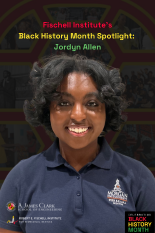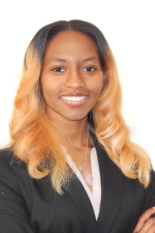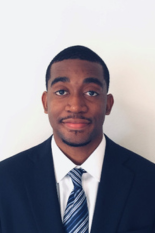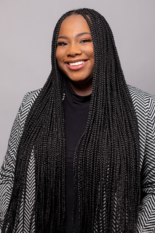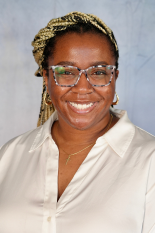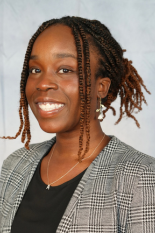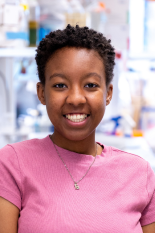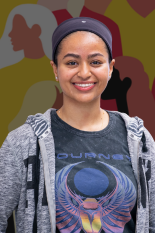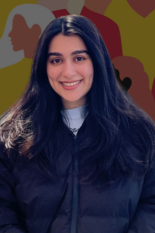News Story
Fischell Institute Black History Month Spotlight: Esther Fadaka
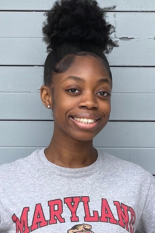
Esther Fadaka is a sophomore public health science student in Fischell Institute Affiliate Fellow and School of Public Health professor Don Milton's Public Health Aerobiology Laboratory (PHAB Lab).
Growing up, Fadaka tended to gravitate toward science and math courses while in high school. Because of this, she has always wanted to pursue a degree in STEM.
"This interest was the building block that led me to pursue public health," she said. "I love how this field, public health, focuses on prevention and taking action before conditions worsen. I strongly believe that if society is equipped with skills and valuable information before the emergence of public health threats, we can effectively combat those issues early in their development."
Fadaka’s interest in public health led her to pursue her undergraduate degree at UMD. Since joining the university, she has enjoyed studying how airborne infections are transmitted as a part of the bioaerosols group in the PHAB Lab.
Fadaka is currently working on a project called Evaluating Modes of Influenza Transmission (EMIT-2), which aims to determine the primary transmission mode of influenza. Using a randomized controlled trial, she will test how interventions, such as handwashing and the use of face shields, impact the virus's ability to move from one host to another.
"This work excites me because I can investigate and research one of the major causes of poor health: infectious disease," she said. "By working with the lab, I'm able to be at the forefront of collecting samples and can further evaluate the severity of infectious diseases such as influenza."
In addition to her lab work, Fadaka was selected to participate in the College Park Scholars Global Public Health program at UMD. GPH explores the connections between health, culture, economic development and environmental sustainability around the world, while advocating for the well-being of all communities. It gives students an opportunity to connect what they’re learning in the classroom with their long-term career goals.
"I've learned about many aspects of public health, such as the social determinants, the importance of public health interventions, and sustainable development goals," Fadaka said. "Since I plan on having a career in public health, this program goes hand in hand with my interests and goals."
As a Black student, Fadaka considers multiple perspectives and factors regarding public health. For example, she had the opportunity to research and write a paper on racial disparities in maternal and child healthcare.
"As a Black woman myself, this is an issue that may arise later on in my life if I decide to have children, and it's alarming to see how differently one is treated solely due to their racial background," she said. "Learning about this topic from that viewpoint gave me a unique perspective and emotionally connected me to the topic."
Fadaka said she feels it is essential to celebrate Black History Month to acknowledge key people who have contributed to today's society.
"It's important to celebrate their accomplishments but also hardships that serve as learning points," she said. "While there is only one month recognized for Black History, this should not be the case; instead, Black accomplishments should be celebrated throughout the year!"
After she earns her bachelor’s degree, Fadaka plans to get her master’s in public health with a focus on epidemiology or health policy. She hopes to become an infectious disease epidemiologist and work to prevent public health threats.
Outside of the lab, Fadaka enjoys going to the movies. She also loves to shop, travel, and spend time with family and friends.
Published February 16, 2024
